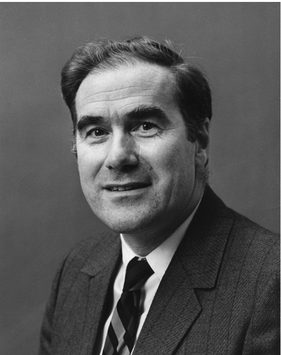Gerald B. Whitham facts for kids
Quick facts for kids
Gerald Beresford Whitham
|
|
|---|---|
 |
|
| Born | 13 December 1927 |
| Died | 26 January 2014 (aged 86) |
| Nationality | American |
| Alma mater | University of Manchester |
| Known for | Wave action Whitham equation Averaged Lagrangian |
| Awards | Norbert Wiener Prize (1980) |
| Scientific career | |
| Fields | Applied mathematics |
| Institutions | California Institute of Technology Massachusetts Institute of Technology |
| Doctoral advisor | James Lighthill |
Gerald Beresford Whitham (born December 13, 1927 – died January 26, 2014) was an American mathematician. He was born in Britain. He was known for his important work in applied mathematics. This field uses math to solve real-world problems.
Whitham was a professor at the California Institute of Technology. He studied how liquids and gases move, which is called fluid dynamics. He also studied waves, like ocean waves or sound waves. He earned his Ph.D. from the University of Manchester in 1953.
His Journey in Math
Gerald Whitham was born in Halifax, West Yorkshire, England. After getting his Ph.D., he became a faculty member at the Massachusetts Institute of Technology (MIT). He worked there from 1959 to 1962.
In 1962, he moved to the California Institute of Technology (Caltech) in Pasadena, California. He played a big part in starting the applied mathematics program there. This program helps students learn how to use math to solve problems in science and engineering.
Awards and Recognition
Whitham received many honors for his contributions to mathematics. In 1959, he became a Fellow of the American Academy of Arts and Sciences. This means he was recognized as a leading expert in his field.
In 1965, he was elected a Fellow of the Royal Society. This is a very old and respected group of scientists in the United Kingdom. Being a Fellow means you are one of the top scientists in the world.
In 1980, Whitham received the Norbert Wiener Prize in Applied Mathematics. This award is given for outstanding work in applied mathematics. He was honored for helping us understand how fluids move and for creating new ways to study waves.
 | Calvin Brent |
 | Walter T. Bailey |
 | Martha Cassell Thompson |
 | Alberta Jeannette Cassell |

